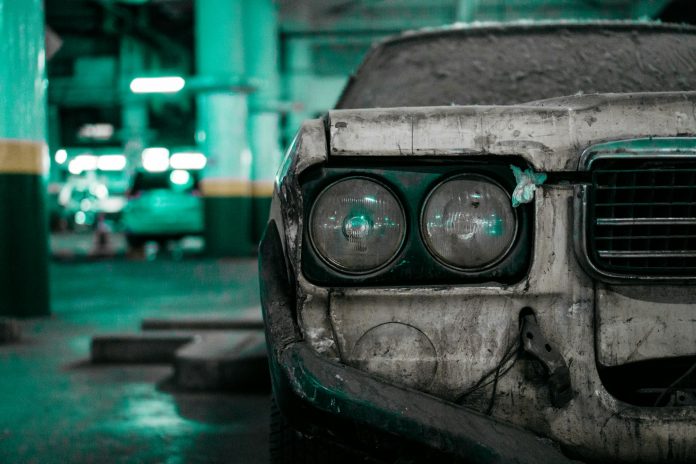Junk cars are often seen as nothing more than an eyesore, cluttering up properties and driveways. However, these abandoned vehicles hold hidden potential and can be dealt with in various ways that are both environmentally friendly and beneficial. In this blog post, we’ll explore the different ways to deal with junk cars, providing you with guidance that goes beyond merely towing them away.
Assessing the Condition
The first step in determining what to do with a junk car is to assess its condition. Is it still operable, or is it completely immobile? Understanding the state of the vehicle can help in deciding the best course of action. For instance, a car that can still run might be more valuable through a different set of options compared to one that’s entirely defunct.
Exploring Reuse Options
Believe it or not, some junk cars can still serve a purpose. Here are some creative reuse ideas:
- Converting a functional junk car into a secondary or backup vehicle, particularly for short trips.
- Repurposing parts of the car for other uses, like turning the seats into home furniture or using the metal body for art projects.
- Donating the vehicle to educational institutions for auto mechanic programs, allowing students to practice their skills.
If none of these reuse options seem viable, reaching out to a junk car buyer can be a practical way to have your vehicle assessed and potentially removed without the hassle of doing it yourself.
Community Benefits
Dealing with junk cars responsibly can have broader community benefits. For instance, clearing out junk cars can improve neighborhood aesthetics and property values, and donating a vehicle to charities can provide them with additional resources. Recycling cars also puts materials back into the supply chain, reducing the demand for new resources.
Financial Benefits
Addressing junk car issues can also have financial benefits. For example, many recycling centers offer monetary compensation for junk cars, depending on the weight and type of materials being recycled. Some scrap yards may even offer a pick-up service for convenience. Additionally, removing a junk car could reduce property maintenance costs, as these eyesores can often attract fines from local authorities.
Recycling the Vehicle
If the car is no longer of any practical use, recycling it is a highly viable option. Recycling prevents harmful materials like batteries and fluids from contaminating the environment. Beyond that, recycled car parts can be immensely beneficial in various industries. The metal from the vehicle can be melted down and reused in construction and manufacturing. The rubber from tires can be recycled into products like playground surfaces and floor mats. Even fluids like antifreeze and transmission fluid can be refined and reused.
Collaborating with Local Services
Engaging with local services can streamline the process of disposing of a junk car. Many areas have specialized junk car removal services that are well-versed in legal and environmental regulations. These services can help with proper documentation and transportation, and even provide information on the potential value of specific parts or materials, making the entire experience hassle-free for the property owner.
Legal Considerations
Before disposing of a junk car, it’s essential to be aware of local laws and regulations. Different states and municipalities have varying rules concerning vehicle disposal, titling, and emissions. Make sure to check local regulations to ensure you comply with any legal requirements for disposing of or donating vehicles. Remember to ensure the title is transferred correctly to avoid any future liabilities and understand any tax implications that might come from scrapping or donating the vehicle.
Highlighting the Educational Aspect
Involving educational institutions in the disposal of junk cars can have long-term benefits for the community. By donating the vehicle to local colleges or vocational schools, you are providing students with the opportunity to gain hands-on experience. This not only aids their education but also fosters a sense of community and resourcefulness, demonstrating the full lifecycle and versatile uses of automotive vehicles.
Environmental Impact
Pay close attention to the environmental impact of junk cars. Abandoned vehicles can leak harmful fluids like oil and coolant into the ground, contaminating local ecosystems. Additionally, they occupy valuable space and contribute to urban blight. Properly disposing of a junk car mitigates these risks, contributing positively to your local community and the planet at large.
Conclusion
Junk cars don’t have to be a burden. With thoughtful planning and consideration, they can be turned into valuable resources or effectively recycled to minimize their impact. Whether you choose to donate, recycle, or repurpose, each option brings its own set of benefits. Take the time to evaluate the best choice for your specific situation, making sure both you and your community stand to gain.



 Bitcoin
Bitcoin  Ethereum
Ethereum  Tether
Tether  XRP
XRP  Solana
Solana  USDC
USDC  Cardano
Cardano  TRON
TRON  Lido Staked Ether
Lido Staked Ether  Avalanche
Avalanche  Toncoin
Toncoin